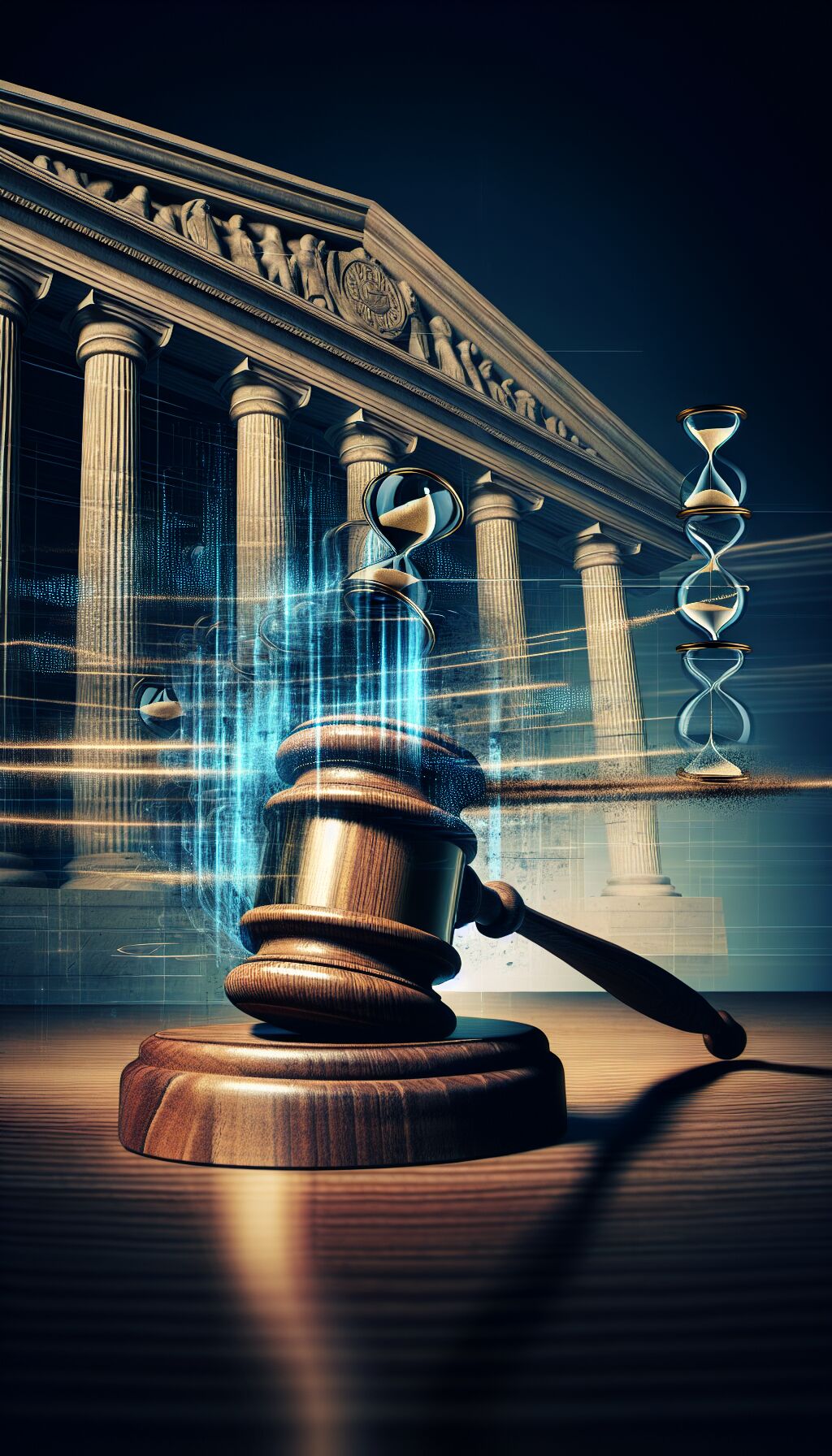Supreme Court Hearings on TikTok Ban: A Balancing Act of Rights and Risks
The Supreme Court is set to hear oral arguments this Friday regarding a controversial U.S. law that mandates TikTok, the widely popular social media app, to either divest from its Chinese parent company, ByteDance, or face a complete ban on its operations within the United States. This pivotal case pits pressing national security concerns against the constitutional rights of free speech for millions of American users who rely on the platform.
A Fast-Tracked Case
After agreeing in December to expedite the legal proceedings, the Court has just nine days to determine whether to uphold TikTok’s request for a temporary halt or delay to the ban that was established by Congress. The legislation is set to take effect on January 19, leaving little time for any significant legal maneuvering.
Given the urgency of the situation, legal experts anticipate that the justices will issue a ruling or directive in a matter of days rather than taking the entire nine days allotted by the Court’s timeline.
The Popularity of TikTok
TikTok remains among the leading social media applications in the U.S., boasting an impressive 170 million users. This immense user base amplifies the stakes surrounding the lawsuit, as a ban could significantly impact how millions of Americans communicate and engage online.
Arguments from TikTok’s Side
In their legal argument, TikTok and ByteDance are advocating for the Court to prevent the enforcement of the statute passed by Congress. The Protecting Americans from Foreign Adversary Controlled Applications Act provides TikTok with a nine-month timeframe to sever ties with ByteDance or face removal from U.S. app stores and hosting services. ByteDance has publicly stated its refusal to comply with the divestment.
In May, TikTok, ByteDance, and several users of the platform initiated legal action against the ban. They contend that the legislation infringes on First Amendment rights, asserting that it exemplifies an unprecedented effort to “single out applicants and bar them from operating one of the most significant speech platforms” in the nation. They argue that lawmakers failed to consider less invasive alternatives to an outright ban.
In a reply brief submitted last month, TikTok’s attorneys emphasized that legal precedent suggests that even in cases of national security, restrictions on speech should be a “last resort.” They argued that further examination and consideration should be applied before such drastic measures are taken.
National Security Concerns
The congressional backing of the ban stems from apprehensions regarding the potential use of TikTok by the Chinese government to harvest vast quantities of user data and disseminate state-sponsored content. Such fears have been echoed by the Biden administration, which, in its brief to the Supreme Court, highlighted the potential “grave national security threats” posed by the app under Chinese ownership. Solicitor General Elizabeth Prelogar noted that the law is specifically directed at China’s control over the app rather than its content.
The administration has raised alarms about the possibility of Beijing using TikTok to “covertly manipulate the platform” for geopolitical advantages or exploit user data for espionage and blackmail purposes. Legal representatives for the Biden administration are poised to argue that Congress did not impose any direct restrictions on speech but acted within its rights considering the national security implications.
Additionally, the administration has submitted classified evidence under seal, asserting it bolsters claims that TikTok’s ownership by ByteDance warrants a ban. However, this evidence remains undisclosed to the public, raising questions about transparency in the judicial process.
Political Pressures and Implications
The rapid pace of the Supreme Court’s consideration of this case coincides with a notable political dynamic, particularly with President-elect Trump voicing support for TikTok in recent months. Following a meeting with TikTok CEO Shou Zi Chew at his Mar-a-Lago estate, Trump expressed a desire to reevaluate the administration’s stance concerning the app while declaring, “I have a warm spot in my heart for TikTok.”
Attorneys representing Trump have also filed official documents with the Supreme Court requesting a postponement of any ruling until after the inauguration on January 20. This request has led TikTok’s legal team to argue that an interim injunction is warranted to allow the new administration time to formulate its approach, particularly in light of the reported support from the incoming administration.
Legislative Opposition and Support
The legal battle has ignited a broader dialogue about censorship and free speech in America, with advocacy forming on multiple sides. A coalition of lawmakers, including Sen. Rand Paul, Sen. Edward Markey, and Rep. Ro Khanna, filed a friendly brief urging the Supreme Court to reconsider the ban, arguing that the evidence supporting the ban is insufficient and does not outweigh First Amendment protections.
In their arguments, these lawmakers referenced historical precedents where national security claims were employed as justifications for censorship—specifically, citing the Sedition Acts and Cold War-era restrictions on speech. They contend that banning TikTok based on “speculative concerns” about foreign influence stands in opposition to core American values and constitutional tenets.
Conversely, other influential lawmakers remain staunch proponents of the ban. Senate Minority Leader Mitch McConnell has denounced TikTok’s challenges as “unmeritless and unsound,” reaffirming that Congress set the January 19 deadline purposefully to eliminate political uncertainty regarding the law’s enforcement.
The Road Ahead
As the Supreme Court prepares to delve into this complex case, the outcome will have far-reaching implications not just for TikTok but for the broader landscape of free speech in the digital age. The decision could potentially redefine how the U.S. government balances national security against individual rights in an increasingly interconnected global environment.
As millions of TikTok users—and a wide swath of the American public—await the Court’s decision, the case encapsulates a critical moment in the ongoing debate over technology, privacy, and freedom in America. The hearings represent a crossroads of digital innovation and constitutional law, underscoring the urgent need for a careful examination of how to maintain security without compromising the freedoms fundamental to American society.










